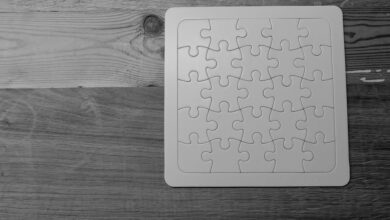Puzzle Games for Developing Spatial Reasoning Skills

Spatial reasoning refers to the ability to understand and manipulate visual information about objects and shapes in a mental space. It involves mentally rotating objects, understanding their relationships, and visualizing how they fit together. This skill is essential in various fields, including mathematics, engineering, architecture, and even art.
One of the primary reasons puzzle games are known to enhance spatial reasoning skills is the nature of their gameplay. These games often present players with abstract objects, shapes, and patterns that require careful observation and analysis. By offering different perspectives and angles, puzzle games encourage players to think critically about the spatial relationships between objects.
A notable example of a puzzle game that develops spatial reasoning skills is Tetris. In this iconic game, players must arrange falling blocks into complete lines. To be successful, players need to envision the shape of each block and mentally rotate them to fit into existing gaps. The constant need to assess spatial relationships and make quick decisions helps improve spatial reasoning abilities over time.
Another popular puzzle game known for enhancing spatial reasoning skills is Portal. This first-person puzzle game involves players navigating through a series of rooms using a portal gun. Players must figure out how to use portals to travel between different areas, reach new levels, and solve complex puzzles. The game’s mechanics require players to visualize spaces, recognize patterns, and mentally plan their movements, contributing greatly to spatial reasoning development.
In addition to these games, there is a wide variety of puzzle games available across different platforms. From jigsaw puzzles to Sudoku and Rubik’s Cube, each game offers unique challenges that require spatial reasoning skills to solve. By engaging in these games regularly, players can strengthen their ability to mentally manipulate objects, enhance their spatial visualization skills, and improve their problem-solving abilities.
The benefits of developing spatial reasoning skills go beyond gaming. They have practical implications in many aspects of life. In the field of mathematics and science, spatial reasoning enables individuals to understand geometric concepts, solve complex equations, and identify patterns. It also plays a crucial role in activities such as reading maps, assembling furniture, and even learning to drive.
To make the most of puzzle games for spatial reasoning development, it is essential to engage in a variety of games that offer different challenges. By exploring a range of puzzles, players can experience diverse spatial scenarios and sharpen their skills in various contexts. Additionally, it is also encouraged to experiment with puzzle games that demand higher levels of spatial reasoning, keeping the brain continuously challenged.
In conclusion, puzzle games are not only entertaining but also serve as an excellent tool for developing spatial reasoning skills. By engaging in these games, individuals can enhance their ability to visualize and manipulate objects mentally, ultimately improving problem-solving and critical thinking abilities. Whether it’s arranging falling blocks in Tetris or navigating portals in Portal, puzzle games are a fun and effective way to boost spatial reasoning skills. So, the next time you want to sharpen your mind, grab a puzzle game and let the spatial challenges begin!





